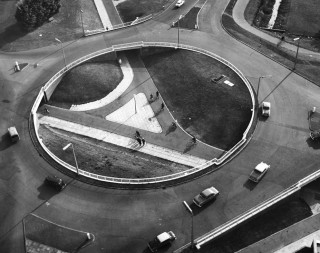Mr Lenthall on the perception of New Towns
“At one stage in the late seventies and the early eighties it was almost a dirty word, New Town, but it’s come back again”
Stevenage Museum

Transcript:
The concept has been received in different ways as time has gone on. At one stage in the late seventies and the early eighties it was almost a dirty word, New Town, but it’s come back again, and, one sees the enormous efforts that are going on in some of the large cities to create a kind of New Town environment in those cities that, it’s got renewed interest. I think from the nation’s point of view and speaking just of the first generation New Towns, they did a number of very significant things. They clearly held the population of London level for a while. You know the, the basic problem was that after the war the devastation of London produced all sorts of intense housing problems and London needed time to deal with that, and it was the purpose of the New Towns to relieve the pressure on housing while London got on with solving its problems. I think from the point of view of people coming out here, people who had been living in really quite poor housing conditions – I mean my first neighbours when I came to the New Town had a child of twelve, and this was the very first home they’d had on their own – as far as they were concerned, it was an enormous blessing to them. I think the fact that the movement out of the New Town, over its first thirty years has been no greater than the movement out of the traditional Old Town, indicates that it’s a stable place. I think if you talk to the New Town people, they would say it’s a very healthy place. I think if you would talk to the industrialists, they would say that their workforce is a hardworking workforce. I think if you talk to the schoolteachers, they would tell you that the children of the New Town respond to their environment; they have a high academic level of achievement. All these sort of things I think are positive things. On the negative side, of course, you are eating up what people at one time thought was valuable agricultural land in the country. It’s rather odd that the wheel has turned full circle now, and we’re talking about turning over some of our agricultural land to woodlands because we’ve got too much of it.
Lenthall 1986









No Comments
Add a comment about this page